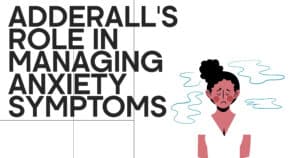In mental health care, many people do not know whether to see a psychologist or psychiatrist. Both professionals treat mental health disorders, but their approaches and scope of practice are quite different. Understanding these differences will help you choose the best type of support.
Psychologists are more focused on therapeutic and behavioral interventions. Psychiatrists, on the other hand, are medical doctors (M.D. or D.O. degree holders) who specialize in diagnosing mental health disorders. They also prescribe and manage medication if needed.
Recognizing when you need support is key to enhancing your mental health. However, choosing between a psychologist vs. a psychiatrist depends on several factors, including symptom severity, treatment style preference, and comfort level with therapy vs medication. In this blog post, we will make a detailed comparison between psychologists.
What Is the Difference Between a Psychologist and a Psychiatrist?
So what is the difference between a psychologist and a psychiatrist in the realm of mental health? The key difference between psychologists and psychiatrists is their training and treatment methods. A psychologist is an expert who understands human behavior and emotion. They deal with the therapy-based module through which they help the person relieve conditions like anxiety, depression, trauma, and stress.
They usually have an academic degree, such as a Doctor of Philosophy (Ph. D.) or a Doctor of Psychology (Psy. D.), so they are trained in psychological assessment and therapy techniques.
The Role of a Psychiatrist in Mental Health Treatment
On the contrary, a psychiatrist is an M.D. (Medical Doctor) or D.O. (Doctor of Osteopathic Medicine) who studies psychiatric diseases and provides diagnoses and treatments just like a general practitioner would. Treating bipolar disorder, schizophrenia, and major depression is frequently done using medication.
Since psychiatrists complete training in medical school, they understand the biological underpinnings of mental illness and how the medication soothes symptoms. Some offer therapy, but most psychiatrists focus on therapeutic drug management and other psychomedical treatment techniques.
What Does a Psychologist Do?
Psychologists help individuals, couples, families, and groups solve their emotional and behavioral issues. They concentrate chiefly on the therapeutic approach, but patients’ psychological aspects are assessed alongside their behavior to develop alternatives for self-management.
At the same time, more profound emotional and mental work is completed on the patient’s psyche. Based on their training and experience, numerous psychologists have particular fields of specialties, such as clinical psychology, counseling psychology, and forensic psychology.
The Role of a Licensed Clinical Psychologist
The role of a licensed clinical psychologist specialization is clinical psychology and practice using CBT as well as DBT, psychodynamic therapy, and several other modalities to manage mental health disorders. These therapies help recover troublesome thought processes and manage the anxiety, depression, and stress developed due to it.
In most states, unlike psychiatrists, psychologists do not use medication to treat patients. However, they may collaborate with other physicians, such as family practitioners, to create a comprehensive treatment plan incorporating medication.
Licensed clinical psychologists can conduct psychological evaluations for PTSD, ADHD, and even OCD. These assessments combine multiple testing methods like standardized tests, interviews, and other observation methods to understand the patient’s mental health needs in depth.
Many clinical psychologists are in private practice or employed in hospitals, universities, and research institutions, providing therapy and psychological assessment services to optimize mental health.
What Does a Psychiatrist Do?
When exploring the concept of “What does a psychiatrist do?” one should understand that a psychiatrist approaches the treatment of mental health disorders with emphasis on biological, neurological, and chemical imbalances within the brain.
Because psychiatrists complete training as medical doctors, they can prescribe medication, which is frequently required in treating patients suffering from severe mental illness.
The Role of Psychiatric Medications in Treatment
Schizophrenia, disorders related to the bipolar spectrum, and severe depression are treated using an antidepressant, antipsychotic, antianxiety, and mood stabilizer to mitigate the symptoms experienced.
Medical Evaluations and Diagnostic Assessments
Besides giving prescriptions, psychiatrists perform physical exams to eliminate any underlying medical issues that may be contributing to the mental health symptoms. Some endocrine glands, specific neurological diseases, and long-term illnesses can imitate psychiatric disorders, necessitating complete medical evaluation.
While psychiatrists have a private practice, some operate in hospitals alongside other doctors and nurses or in the psychiatric ward, outpatient unit, and inpatient unit, where they follow their patients and change prescriptions as required.
Psychotherapy and Medication Management
Some psychiatrists offer psychotherapy but focus more on medication treatment rather than extensive talking therapy. Patients who require therapy and medication usually contact a psychologist who handles the counseling, while the psychiatrist manages the medicines within a team. Such an approach integrates all the components of an individual’s mental health care, emotionally and medically.
Can a Psychologist Prescribe Medication?
A common question that most have when selecting between a psychologist and a psychiatrist is whether a psychologist can prescribe medications. Usually, the answer is no. Psychologists without medical training cannot prescribe therapeutic drugs or medication related to mental health.
Exceptions Where Psychologists Can Prescribe Medication
In Louisiana, New Mexico, and Illinois, some licensed psychologists are permitted to dispense medicines. But even in those states, psychologists have to undertake extensive pre-license training in psychopharmacology and require medical supervision before prescribing.
Why Psychiatrists Can Prescribe Medication
Psychiatrists, as licensed medical practitioners, can prescribe drugs in every state. This particularly impacts those with severe or comorbid mental health conditions and complex medical treatments that worsen the patient’s state and further complicate the issue.
Compare and Contrast the Roles of a Psychologist With a Psychiatrist
Let’s analyze how psychologists and psychiatrists can identify differences in their mental health practices. For example, a psychologist conducts talk therapy and uses several behavioral techniques that form part of the psychologist’s practice.
A psychiatrist practices medicine and will question a patient’s medical history in detail before prescribing medication. A psychologist will pay close attention to how a patient’s mind works and how they feel, while a psychiatrist will look at medical issues involving the brain and nerves.
Differences in Education and Training
Psychologists spend much time learning everything related to human behavior, therapy methods, and psychological evaluations. On the other hand, psychiatrists train to become doctors. This difference in training allows psychiatrists to prescribe medication while psychologists cannot.
When to See a Psychologist Vs. a Psychiatrist
Knowing how to choose between a psychologist vs. psychiatrist relies on the type and extent of symptoms that one is experiencing. If the stress, anxiety, or relationship difficulties that you are going through are mild to moderate, then therapy with clinical psychologists will be beneficial.
On the other hand, if you are struggling with disorders like bipolar disorder or schizophrenia, then it is pertinent to seek medical assistance from a psychiatrist who specializes in treating those conditions.
Choosing the Right Mental Health Professional for Your Needs
Selecting a psychologist or psychiatrist depends upon the individual’s requirements and preferred type of treatment. For those who seek guidance, reaching out to a seasoned mental health care practitioner is a wise decision to evaluate the effectiveness of therapy, medication, or both comprehensively.
Get the Support You Need With CA Mental Health
If you need mental health support from qualified professionals, CA Mental Health is equipped to provide suitable care for your situation. From therapy with a clinical psychologist to medication management with a psychiatrist, our team will assist you through each step. Call us today and take the first step towards achieving mental wellness.
FAQs
Is it better to see a psychologist or psychiatrist?
Your specific needs to inform the decision between a psychologist and a psychiatrist. A psychologist would probably be best if you need intervention for emotional and behavioral problems. However, a psychiatrist would be better suited if you have a serious mental health issue that is likely to need medication. Sometimes, working with both specialists offers patients the most comprehensive care.
What can a psychologist do that a psychiatrist cannot do?
A licensed clinical psychologist concentrates on therapy, counseling, and conducting psychological assessments. They have training in multiple therapeutic methods and assist patients in coping strategies. While psychiatrists treat patients medically and manage their medications, psychologists provide rich, emotion-focused therapy sessions involving deep exploration of feelings, behaviors, and thoughts.
Can psychologists diagnose?
Clinical assessments and psychological evaluations enable psychologists to diagnose mental health disorders. Anxiety, depression, and post-traumatic stress disorder (PTSD) are a few of the many conditions assessed by licensed clinical psychologists through interviews, behavioral observation, and standardized testing. Psychiatrists are the only professionals able to issue medication for the disorders, as mentioned earlier.
Who is more powerful, a psychologist or a psychiatrist?
The word “powerful” can mean different things depending on the context. Still, in this case, it refers to a general medical practitioner with a distinct hierarchy in their field compared to a psychologist. Psychiatrists usually have more medical power, courtesy of their MDs, allowing them to prescribe drugs, while psychologists do long-term therapy or behavior modification exercises with the patients. Each has their place in the patient’s care, and their contribution depends on mental health care.
Can psychologists diagnose ADHD?
A licensed clinical psychologist is qualified to identify ADHD through various psychological tests, interviews, and observing behavior. They assess a patient’s cognitive abilities, level of attention, and impulsivity to decide if they qualify for an ADHD diagnosis. If treatment requires medication, however, a psychiatrist will undoubtedly have to become part of the team.












